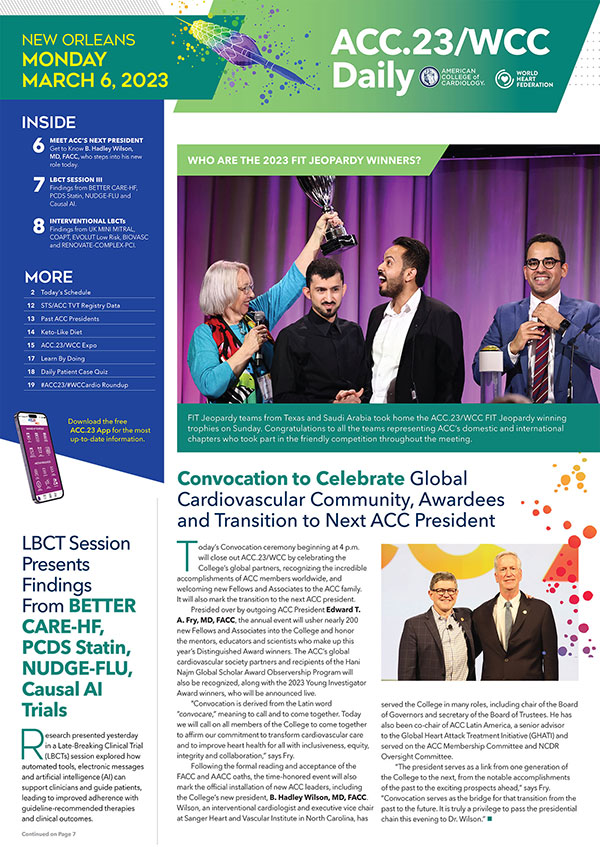Fostering Discussion Around Genetics and Cardiomyopathies

As with any disease, the first step towards treatment starts with a diagnosis. For patients with cardiomyopathies, which can appear clinically indistinguishable, genetic testing and genetic therapies can hold the keys to this first step and help patients feel both seen and heard.
In a recent article in JACC: Heart Failure, Amy R. Kontorovich, MD, FACC, highlights how genetic counseling and treatment can offer insights into unique management considerations and benefit both patients and their families who often struggle with timely diagnosis and treatment. "Identifying an impactful genetic variant as the cause of a patient's cardiomyopathy can have important prognostic impact and enable streamlined cascade testing to highlight at risk relatives," she says.
Don't miss today's Eugene Braunwald Keynote taking place at 12:45 p.m. in Room 257.
Kontorovich also stresses the need for a multidisciplinary approach that includes genetic counseling and judicious use of genetic testing, especially given that variants of uncertain significance are frequently uncovered and could lead to overinterpretation.
"Certain genotypes are associated with unique potential cardiac and noncardiac risk factors and may dictate personalized approaches to treatment," she says. Thus, the need for genetic evaluations to "ideally involve trained geneticists or genetic counselors, with testing tailored to the phenotype under investigation" is warranted.
According to Kontorovich, "the yield of genetic testing is optimized when performed on a proband with a clear phenotype and interrogates genes that are validated in association with that specific form of cardiomyopathy."
Examples of specific cardiomyopathies that can benefit from genetic testing include dilated cardiomyopathy (DCM) and hypertrophic cardiomyopathy (HCM). In addition, certain types of nonischemic cardiomyopathy such as alcoholic, peripartum and myocarditis can be genetically mediated with genes overlapping with DCM, HCM, and neuromuscular disease, Kontorovich says.
Despite the benefits, genetic screening and treatment are still underused. For example, an ACC survey of more than 600 patients with HCM last year found only a very small number of those surveyed took part in cascade or family screening (3%) or genetic testing (14%). Kontorovich's article, coupled with today's Eugene Braunwald Keynote by Elizabeth M. McNally, MD, PhD, on the same topic, are helping to fuel further discussion and awareness of the opportunities and benefits tied to genetic screening and treatment, with the end goal of optimizing diagnosis and outcomes in this challenging patient population.
Keywords: ACC23, ACC Annual Scientific Session, ACC Scientific Session Newspaper, ACC.23/WCC Meeting Newspaper
< Back to Listings


